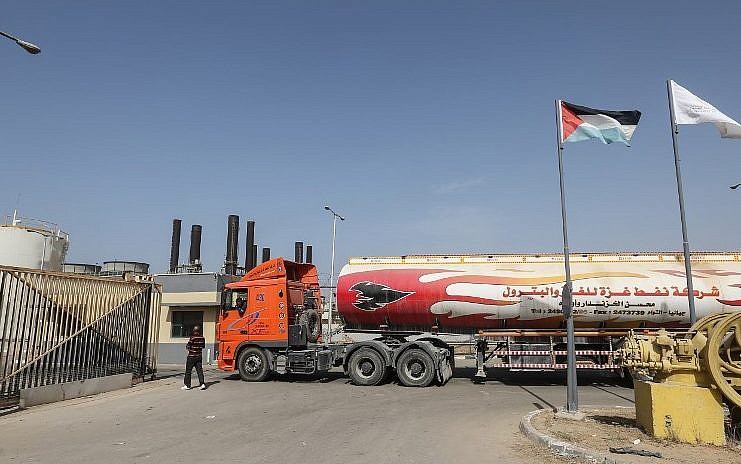As dawn broke on a Tuesday morning, the Indonesian Hospital in Beit Lahia, northern Gaza Strip, found itself in the throes of an energy crisis. Its generators had run dry of diesel, leaving doctors and nurses grappling with a dire situation. This scenario is emblematic of the harsh reality that has gripped Gaza for over two weeks now – a reality where no essential supplies, be it food, water, or fuel, are permitted entry. The implications of this fuel embargo are profound, as it raises questions about humanitarian priorities, civilian suffering, and the motivations behind Israel’s stance.
Fuel as a “Dual Use” Commodity
Israel justifies its refusal to allow fuel into Gaza by categorizing diesel as a “dual use” commodity. This classification, shared by some other countries, means that fuel can potentially serve both civilian and military purposes. As a result, it has been heavily controlled and restricted. However, it’s essential to note that Israel has established a highly complex system of approvals and monitoring to ensure that fuel designated for “civilian use” is exclusively supplied to Gaza’s sole power plant. The mechanisms in place should theoretically guarantee that fuel doesn’t fall into the wrong hands.
Gaza’s Desperate Plight Amidst Conflict
Gaza, with its 2.3 million residents, is enduring a siege and constant aerial bombardment following a surprise attack by the armed wing of Hamas on Israeli territory. The conflict has exacted a heavy toll, with significant civilian casualties. The Gaza Strip is grappling with a dire healthcare situation, with over 5,791 Palestinians killed and a staggering 16,297 injured. Many of these wounded individuals require hospital treatment, and the healthcare sector, which was already on the brink of collapse, is now overwhelmed. This humanitarian crisis poses a grim reality for the people of Gaza.
Humanitarian Aid on the Brink
The situation in Gaza is dire, with the entire humanitarian aid operation on the brink of collapse. If fuel is not promptly allowed into the besieged enclave, the consequences will be catastrophic. Hospital generators, water desalination plants, and the distribution of food and medical supplies all hinge on the availability of fuel. Ten out of Gaza’s 35 hospitals are already out of service due to either heavy damage or a lack of the necessary fuel to power them. The head of the United Nations Relief and Works Agency (UNRWA) in Gaza has issued a stark warning: “Fuel is vital for life, and we will run out of fuel for Gaza.”
Israel may have the mechanisms in place to allow fuel deliveries to Gaza, but the urgent question arises: is this a matter of ability or, rather, a lack of willingness? A statement from an Israeli military official suggests that creating a severe humanitarian crisis is a necessary means to achieve their goals, raising concerns about the motivations behind the fuel embargo.
The fuel crisis in Gaza is exacerbating an already dire humanitarian situation, causing suffering to the civilian population, who are living on the edge of survival. While Israel maintains its stance on the dual-use classification of fuel, the urgency of the situation cannot be overstated. The fate of countless lives depends on the immediate entry of fuel into Gaza, making it a pressing global concern. Inaction in this regard could result in a preventable tragedy of significant proportions, as hundreds, if not thousands, may face the prospect of losing their lives due to the lack of fuel.















